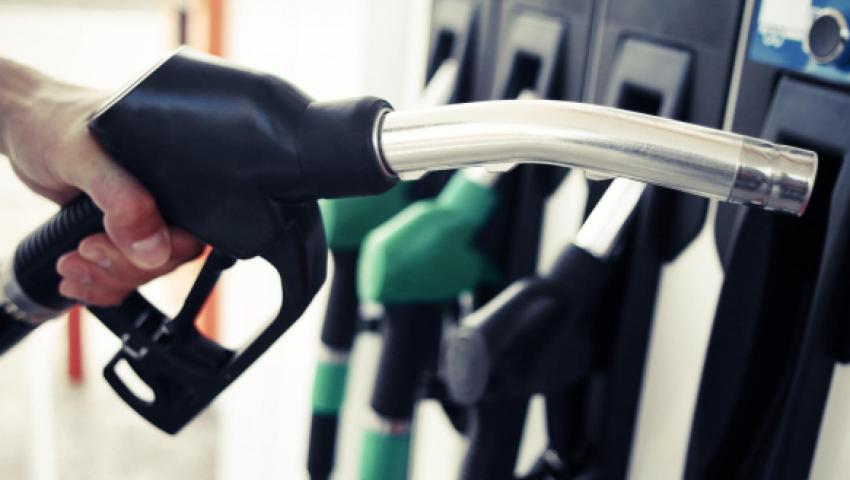Fuel prices are returning to pre-war levels, but supplies to Bulgaria remain tight

Source: needpix.com
In one year, the price of gasoline at gas stations in Bulgaria has increased by 13 cents per liter (5.24 percent), with a downward trend. This is shown by the data of the "Fuelo" platform. If on February 10, 2022, A95 gasoline was sold for BGN 2.48 per liter, yesterday its average retail price was BGN 2.61 per liter. The data also show that for the last year the most expensive retail gasoline was on July 8 and 9 - BGN 3.41 per liter. For the last month, the price of fuel has not changed, BTA analyzes.
Diesel has risen in price by 37 cents per liter (14.45 per cent) in one year, again with a downward trend. On February 10, a liter of this type of fuel was traded for BGN 2.56, while a year later the price was an average of BGN 2.93 per liter, according to data from "Fuelo". Diesel was the most expensive in the period June 30, 2022 - July 13, 2022, with prices then varying between BGN 3.55 and BGN 3.56 per liter. For the last month, diesel has become cheaper by 3 cents, with a tendency to become cheaper.
For the considered annual period, propane-butane prices decreased by 14.39 percent or by 20 cents per liter. On February 10, it cost BGN 1.39 per liter, while it is currently BGN 1.19 per liter. In the period May 4-12, 2022, methane was sold at the highest price - BGN 1.61 per liter. For the last month, the price of propane-butane has increased by 1 cent per liter, and the tendency for this type of fuel is to increase in price.
In one year, the price of methane has increased by 42 cents per kilogram (14.79 percent), and the trend here is also towards a decrease in price, the data of "Fuelo" also show. On February 10, 2022, methane at gas stations in the country cost BGN 2.84 per kilogram, and now it is sold for an average of BGN 3.26 per kilogram. During this one-year period, the most expensive methane was sold on September 28 - BGN 5.97 per kilogram. Over the last month, methane has become cheaper by 42 cents per kilogram, continuing the downward trend.
The chairman of the Bulgarian Oil and Gas Association (BOGA) Zivodar Terziev commented to BTA that "we are currently in pre-war times in terms of prices".
According to him, what was found as price growth during the July-August period last year, was compensated at the end of 2022 and the beginning of this year. At the moment, the markets are "conditionally calm", awaiting news from the east and from the west - from Russia and the recovery of China, as well as from the US, which is "suppressing" fuel prices in order to reduce the effect of inflation. Terziev drew attention to the fact that the next few weeks are very important in order to see at what price levels oil products will settle. There is already information that Russia is cutting its oil production by 500,000 barrels per day in March, which is a kind of sign that prices will go up.
"If we look at the month of February, I believe that these prices that we are seeing at the moment, which correspond to the oil of pre-war times, but with a higher exchange rate of the dollar, should remain as we see today," commented Terziev. However, he clarified that most "market players", including the refinery in Burgas, are focusing on non-Russian oil and goods produced from non-Russian oil. This means that the more diversified and diverse the market, the more different the prices will be.
The news related to our refinery is that Lukoil Neftohim Burgas, in addition to "looking" at Kazakh and Azeri oil, also made attempts in March to deliver raw materials through the Bosphorus. "Several tankers will come from the southern direction, I don't want to say exactly from where, but it is far enough, which will give the Bulgarian producer the opportunity to trade on the European market, without absolutely any restrictions, but this may change the prices on our market, because when the oil comes from 3,000-4,000 km, as well as when it is delivered with a much more difficult logistics scheme, of course there is nothing else to expect, except for price adjustments at the relevant time," said the president of BOGA.
According to Terziev, it is very important what the prices will be after the holidays in March, because they will be decisive for the next holidays in April (Easter), when there will be ever greater consumption. Now, most of the traders have stocked up on petroleum products before February 5, so there is not even much trading at the moment. "However, if Moscow really reduces the export of Russian crude oil globally, it will lead to upheaval in some parts of the world," Terziev pointed out.
"I think that in February the prices will be the same, because the goods are available. We are all waiting after March 3-5 to see how the spring part of the market will play out. Then we have farmers who sow seeds. We have builders who will move. The whole industry after March 1 is taking a different turn. Also, globally, if China's economy picks up and at the same time Russia curbs oil sales, the responses of the other major oil producers will be awaited. If they also limit oil production, and at the same time China is looking, this will inevitably lead to an increase in prices. But everything is also an "information game". That's why prices often change," commented the chairman of BOGA. According to Zivodar Terziev, the Bulgarian market has no reason to worry in the next 30-40 days.
